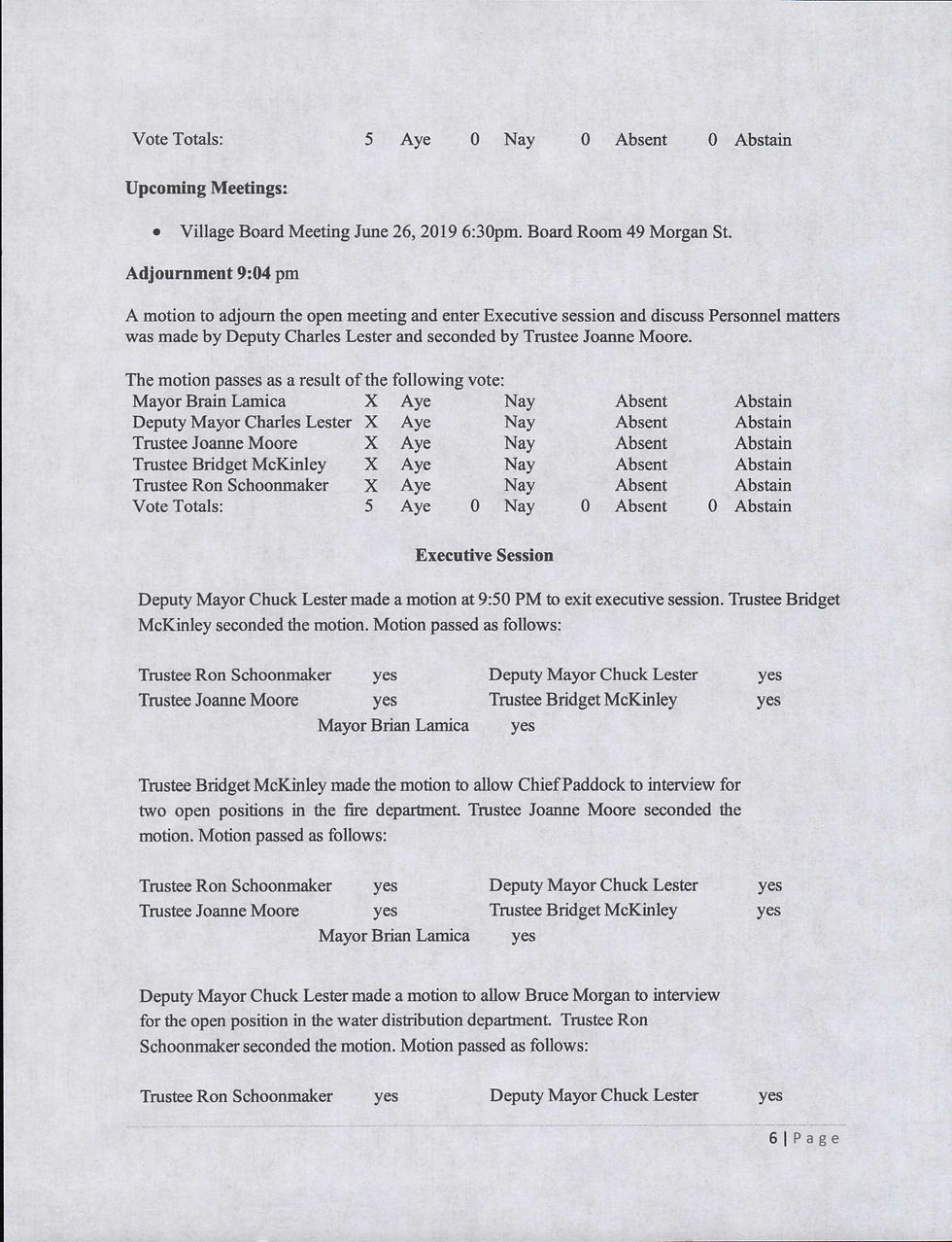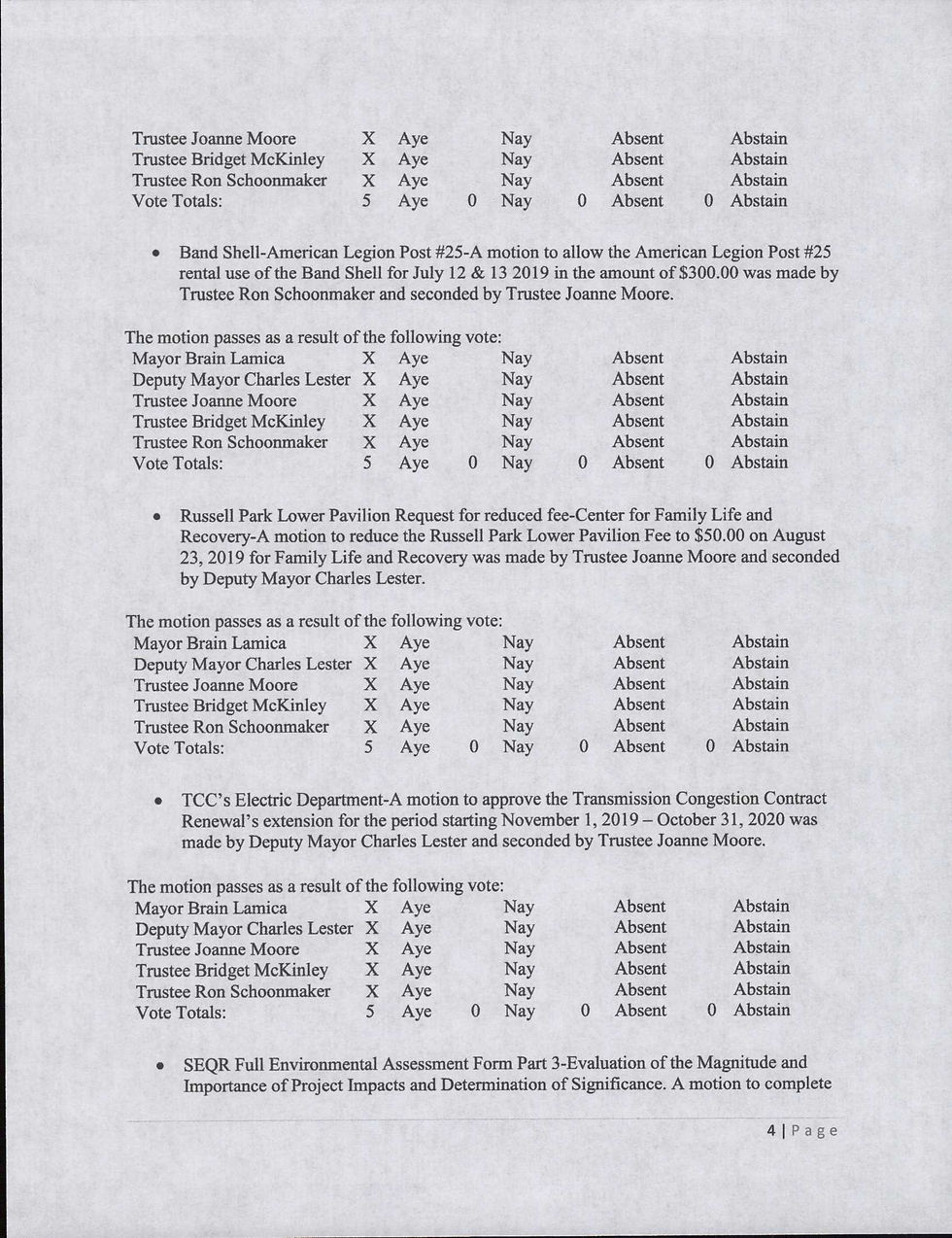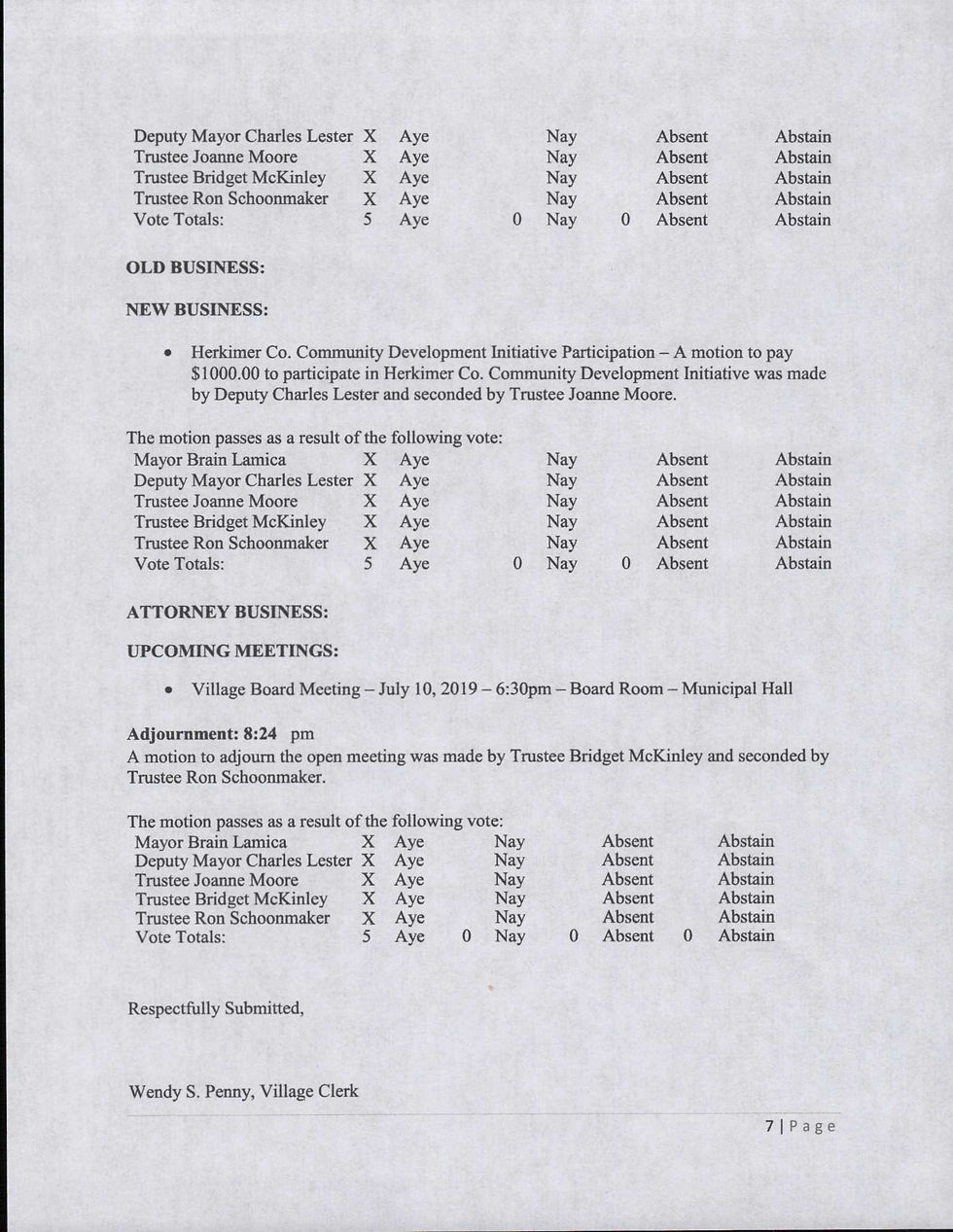FOUR-FLUSHERS
- Catherine M Macera
- Sep 29, 2019
- 6 min read
The prohibition of 18 U.S.C. § 1001 requires that the false statement, concealment or cover up be "knowingly and willfully" done, which means that "The statement must have been made with an intent to deceive, a design to induce belief in the falsity or to mislead, but § 1001 does not require an intent to defraud -- that is, the intent to deprive someone of something by means of deceit."
When the people notice questionable actions by public servants, and it is habitual for several terms, their fear of exposure, leads to more intentional deceit, that slippery slope...
Minutes really are revealing, even with the attempt to appear as if they are following laws, rules and regulations. In fact, minutes leave trail of intent. These five servants are so set on protecting the past from being exposed, they are setting the table themselves, that will leave the trail of crumb to follow.


NOTE FAILURE TO PROVIDE THE BUDGET LINE OF EXPENDITURE . MORE INPORTANT WAS THIS PART OF THE 2019-2020? Check out this blog post to see the budget provided to OSC.

• Resolution #2019-14- Steel Creek Floodplain and Stream Channel Restoration Project authorization of local 10% match-A motion to accept Steel Creek Floodplain and Stream Channel Restoration Project authorization of local 10% match- was made by Trustee Ron Schoonmaker and seconded by Trustee Joanne Moore.
The motion passes as a result of the following vote: Mayor Brain Lamica X Aye Nay Absent Abstain Deputy Mayor Charles Lester X Aye Nay Absent Abstain Trustee Joanne Moore X Aye Nay Absent Abstain Trustee Bridget McKinley X Aye Nay Absent Abstain Trustee Ron Schoonmaker X Aye Nay Absent Abstain Vote Totals: 5 Aye 0 Nay 0 Absent 0 Abstain

Of note, again no RFPS for "street Clean Up" resolutions have been passed prior to this date, again the bids them were not read into the minutes. This brings 161 Otsego St project up $28,00.00 of tax payers money, and as this date have failed to recoup our money.


By way of background, the Open Meetings Law requires that a procedure be accomplished, during an open meeting, before a public body may enter into an executive session. Specifically, §105(1) states in relevant part that:
"Upon a majority vote of its total membership, taken in an open meeting pursuant to a motion identifying the general area or areas of the subject or subjects to be considered, a public body may conduct an executive session for the below enumerated purposes only..."
As such, a motion to conduct an executive session must include reference to the subject or subjects to be discussed, and the motion must be carried by majority vote of a public body's membership before such a session may validly be held. The ensuing provisions of §105(1) specify and limit the subjects that may appropriately be considered during an executive session.
One of the phrases that appears repeatedly in the minutes as a basis for executive session is “personnel reasons”. The provision concerning the possibility of discussing that subject in executive session is §105(1)(f), which permits a public body to enter into executive session to discuss:
"...the medical, financial, credit or employment history of a particular person or corporation, or matters leading to the appointment, employment, promotion, demotion, discipline, suspension, dismissal or removal of a particular person or corporation..." (emphasis added).
Due to the presence of the term "particular" in §105(1)(f), we believe that a discussion of "personnel" may be considered in an executive session only when the subject involves a particular person or persons in relation to one or more of the qualifers found in that provision.
It has been advised that a motion involving §105(1)(f) should be based on its specific language. For instance, a proper motion might be: "I move to enter into an executive session to discuss the employment history of a particular person (or persons)". Such a motion would not in our opinion have to identify the person or persons who may be the subject of a discussion. By means of the kind of motion suggested above, members of a public body and others in attendance would have the ability to know that there is a proper basis for entry into an executive session.
The Appellate Division rendered a decision regarding the specificity of motions for entry into executive session that offers direction. In Zehner v. Board of Education of Jordan-Elbridge (91 AD3d 1349, 937 NYS2d 510 [4th Dept. 2012]), the court required a public body to “identify with particularity the topic to be discussed, … since only through such identification will the purposes of the Open Meetings Law be realized.” The school board had entered into executive session based on a recitation of the statutory language in §105. Confirming the holding in Daily Gazette v. Town Board (444 NYS2d 44[1981]), the court determined that “merely regurgitating” the statutory language was

Board fails to be able to even perform the simplest tasks of their duties sworn oath...

So many violations on the very first page...
1) Note time of meeting, all boards meetings start at 6:30 pm every second and fourth Wednesday . No public notice was published regarding a time change
2) As shown above from the June 12, 2019 minutes:
.the medical, financial, credit or employment history of a particular person or corporation, or matters leading to the appointment, employment, promotion, demotion, discipline, suspension, dismissal or removal of a particular person or corporation..." (emphasis added).
Due to the presence of the term "particular" in §105(1)(f), we believe that a discussion of "personnel" may be considered in an executive session only when the subject involves a particular person or persons in relation to one or more of the qualifers found in that provision.
3) we have no truth in fact , of transpired, regardless if action was taken or not, in fact a review of the minutes of this term of servants, will show that there is a great lack of accountability, transparency and truth, what can be seen is intentional deceit...

• New Hire– Water Department- Christopher Patrei –An e-mail vote commenced resulting in a motion to hire Water Maintenance Person Christopher Patrei for the Water Department was made by Deputy Mayor Charles Lester and seconded by Trustee Ron Schoonmaker.
The motion passes as a result of the following vote: Mayor Brain Lamica X Aye Nay Absent Abstain Deputy Mayor Charles Lester X Aye Nay Absent Abstain Trustee Joanne Moore X Aye Nay Absent Abstain Trustee Bridget McKinley X Aye Nay Absent Abstain Trustee Ron Schoonmaker X Aye Nay Absent Abstain Vote Totals:
5 Aye 0 Nay 0 Absent 0 Abstain
According to COOG opinion: In view of that definition and others, I believe that a meeting, i.e., the "convening" of a public body, involves the physical coming together of at least a majority of the total membership of such a body, or a convening that occurs through videoconferencing. I point out, too, that §103(c) of the Open Meetings Law states that “A public body that uses videoconferencing to conduct its meetings shall provide an opportunity to attend, listen and observe at any site at which a member participates.”
The amendments to the Open Meetings Law in my view clearly indicate that there are only two ways in which the members of a public body may cast votes or validly conduct a meeting. Any other means of conducting a meeting or voting, i.e., by telephone, by mail, or by e-mail, would be inconsistent with law.



Did you catch that ?
Resolution #2019-14 –Steel Creek Floodplain and Stream Channel Restoration Project authorization of local 10 % Match - A motion to amend the date of Steel Creek Floodplain and Stream Channel Restoration Project authorization of local 10% Match was made by Deputy Mayor Charles Lester and seconded by Trustee Bridget McKinley.
The motion passes as a result of the following vote: Mayor Brain Lamica X Aye Nay Absent Abstain Deputy Mayor Charles Lester X Aye Nay Absent Abstain Trustee Joanne Moore X Aye Nay Absent Abstain Trustee Bridget McKinley X Aye Nay Absent Abstain Trustee Ron Schoonmaker X Aye Nay Absent Abstain Vote Totals: 5 Aye 0 Nay 0 Absent 0 Abstain
A quick scroll up to June 12 page 3
That's right, this resolution was already passed ! But on the 12th it was offered by the between the sheets politico servants schoonmaker and moore.


Criminal intent means the intent to do something wrong or forbidden by law. Intent refers to the state of mind accompanying an act especially a forbidden act. It is the outline of the mental pattern which is necessary to do the crime.
decision-making
the action or process of making decisions, especially important ones.




Comments